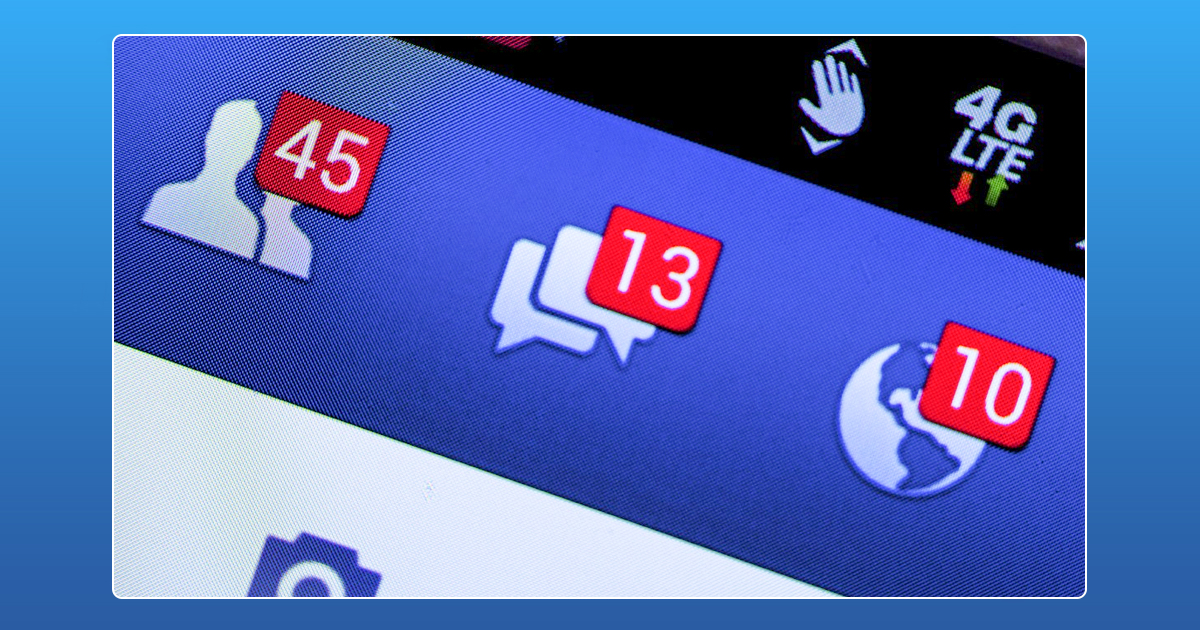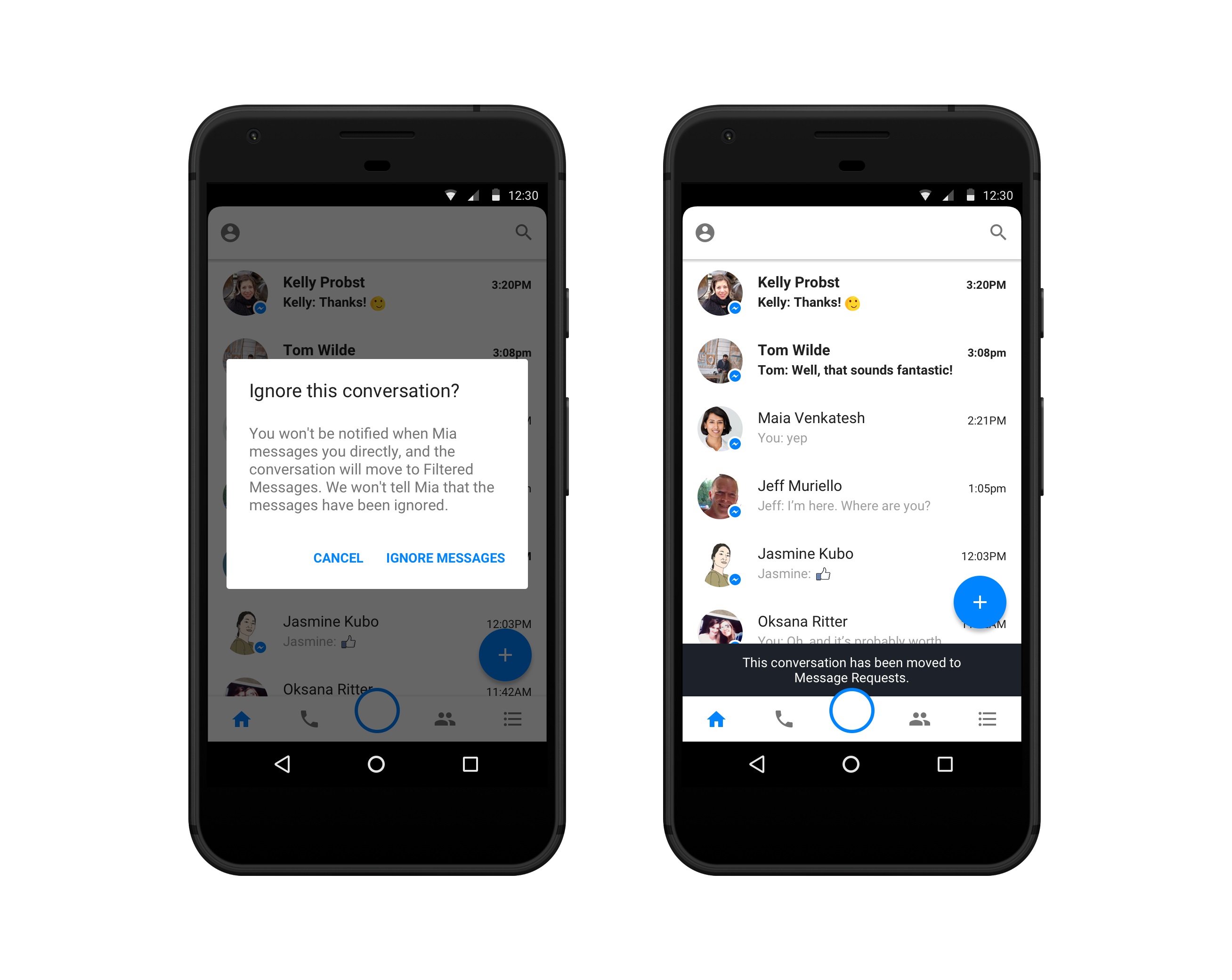Latest News
Facebook Unveils New Features To Curb Harassment

Facebook, the social media giant, announced new tools to curb harassment on the social media network, including its messaging app, Messenger. Using feedback from both users and organization groups, the social media giant created the new tools to help people who experience higher levels of harassment online, like women and journalists.
![]()

The new features will allow the users to proactively block people from contacting them on social media and ignore messages of particular persons. The company is also increasing security to prevent people from creating fake accounts, including looking at various signals like IP addresses. The new feature helps users block friend requests from any new account created by the user who was blocked earlier.
Another feature will allow users to move messages from a harasser out of their inbox to Filtered Messages without blocking them so they don’t get notified. Once conversations are moved to the Filtered Messages folder, the person harassing them will no longer get read receipts and won’t know they are blocked. In a blog post, the company’s Global Head of Safety Antigone Davis wrote, “We’ve heard stories from people who have blocked someone only to encounter the same harasser using a different account. In order to help prevent those bad encounters, we are building on existing features that prevent fake and inauthentic accounts on Facebook.”
For these latest features, Facebook considered feedback from 150 safety experts around the world. In a Facebook post, Chief Operating Officer of Facebook, Sheryl Sandberg further thanked the National Network to End Domestic Violence, the Centre for Social Research (CSR) India and YWCA Canada for their contributions in designing these features.
Facebook has been trying hard to stop and prevent cyberbullying and harassment. However, even if the content is removed or accounts are disabled, there are ways around the rules that allow people to continue the harassment. Speaking about the need to feel safe, Sheryl Sandberg added, “Everyone deserves to be protected. We’ll keep doing what we can to make sure people feel safe on Facebook.”
According to the company, both the features are fully functional and ready to use!
Latest News
D2C Brand Neeman’s Raises $4 Million for Tier 2/3 Store Expansion & Eco-Friendly Shoes

Hyderabad, January 13, 2026 Neeman’s, India’s leading D2C footwear brand famed for sustainable shoes and patented PIXLL® technology, has raised $4 million from existing investors. This funding boosts its cumulative capital past $10 million since 2015, with a post-money valuation nearing $50 million. CEO Vijay Chahoria emphasized offline retail as the “next frontier,” planning 50+ new stores in Tier 2/3 cities like Jaipur and Lucknow to blend eco-friendly innovation with hands-on customer experiences.
In India’s booming D2C ecosystem where footwear sales hit ₹1.2 lakh crore in 2025 Neeman’s targets hybrid retail amid high online CAC and 25-30% returns. Backed by vegan, machine-washable shoes priced ₹2,000-4,000, the brand leverages PIXLL® (5x more breathable than leather) for carbon-neutral comfort. Recent 5x revenue growth to ₹100 crore ARR, 1M+ pairs sold via Myntra and stores, and awards at India D2C Summit 2025 position it ahead of rivals like Paaduks.
Neeman’s offline expansion India eyes the $15B sustainable footwear market by 2028, fueled by PLI schemes, Gen Z’s 70% eco-preference (Nielsen), and Southeast Asia exports. Challenges like real estate costs are offset by data-driven inventory and omnichannel QR tech. Watch for Q1 2026 launches in Hyderabad and Bengaluru redefining D2C success through authentic, “Wear the Change” branding.
Latest News
Centre Mulls Revoking X’s Safe Harbour Over Grok Misuse

The Centre is weighing the option of revoking X’s safe harbour status in India after its AI chatbot Grok was allegedly misused to generate and circulate obscene and sexually explicit content, including material seemingly involving minors. The IT Ministry has already issued a notice to X, directing the platform to remove unlawful content, fix Grok’s safeguards, act against violators, and submit a detailed compliance report within a tight deadline. If the government finds X’s response inadequate, it could argue that the platform has failed to meet due‑diligence standards under Indian law, opening the door to harsher action.
Under Section 79 of the IT Act, safe harbour protects intermediaries like X from being held directly liable for user‑generated content, provided they follow due‑diligence rules and promptly act on legal takedown orders. Revoking this protection would mean X and its officers could be exposed to criminal and civil liability for obscene, unlawful, or harmful content that remains on the platform, including AI‑generated images from Grok. This prospect significantly raises X’s compliance risk in India and could force tighter moderation, stricter AI controls, and more aggressive removal of flagged posts.
The Grok episode also spotlights the regulatory grey zone around generative AI, where tools can create harmful content at scale even without traditional user uploads. Policymakers are increasingly questioning whether AI outputs should still enjoy the same intermediary protections as conventional user posts, especially when they involve women and children. How the government ultimately proceeds against X over Grok misuse could set a precedent for AI accountability, platform responsibility, and safe harbour interpretation in India’s fast‑evolving digital ecosystem.
Latest News
How Pronto Is Redefining 10-Minute Home Services in India with a $25 Million Fundraise

Home services startup Pronto is in advanced talks to raise about $25 million at a near-$100 million valuation, underscoring strong investor confidence in India’s fast-growing 10-minute home services market. This potential round would be the company’s third major funding milestone after its $2 million seed and $11 million Series A in 2025, backed by marquee investors such as General Catalyst, Glade Brook Capital, Bain Capital and new participant Epiq Capital. The fresh capital is expected to further strengthen Pronto’s positioning as a leading tech-led household help platform for urban consumers.
Pronto operates a 10-minute on-demand home-services platform that connects users with trained, background-verified workers for everyday tasks like sweeping, mopping, utensil cleaning, laundry and basic cooking. Using a hub-and-spoke, shift-based model, the startup stations workers at hyperlocal hubs, enabling sub-10-minute fulfilment and more predictable earnings compared to the informal domestic-help market. Founded in 2024 by Anjali Sardana and based in Delhi NCR, Pronto has already expanded from Gurugram into major cities such as New Delhi, Mumbai, Bengaluru and Pune, and is handling around 6,000 daily bookings with nearly 1,300 active professionals as of December 2025.
The upcoming $25 million fundraise is expected to be used to enter more metros, deepen presence in existing neighbourhoods with additional hubs and upgrade Pronto’s technology for smarter routing, shift planning and real-time operations. A significant portion of the capital will also go into training, retention and benefits for its workforce to maintain consistent service quality at scale, especially as competition heats up from rivals like Snabbit and Urban Company in the rapid home services space. This near-$100 million valuation not only validates Pronto’s model but also highlights a broader shift toward organised, tech-driven domestic-help solutions in India’s largely informal home-services market.













Xyecujmd
May 26, 2025 at 11:40 pm
Explore the ranked best online casinos of 2025. Compare bonuses, game selections, and trustworthiness of top platforms for secure and rewarding gameplayBonus offer.
Kylan Branch
July 21, 2025 at 7:34 am
Pretty! This has been a really wonderful post. Many thanks for providing these details.
Jamesdig
October 11, 2025 at 8:08 am
https://medivermonline.shop/# ivermectin 5
low-cost ivermectin for Americans
XavierThafe
October 11, 2025 at 6:29 pm
ivermectin skin rash: Stromectol ivermectin tablets for humans USA – trusted Stromectol source online
MM88
November 6, 2025 at 3:03 pm
Khám phá thế giới giải trí trực tuyến đỉnh cao tại MM88, nơi mang đến những trải nghiệm cá cược thể thao và casino sống động.
iwin
November 7, 2025 at 12:14 am
iwin – nền tảng game bài đổi thưởng uy tín, nơi bạn có thể thử vận may và tận hưởng nhiều tựa game hấp
站群程序
November 7, 2025 at 4:08 pm
搭载智能站群程序,自动化搭建与管理,为SEO项目提供核心驱动力。站群程序
Kuwin
November 8, 2025 at 6:04 pm
kuwin sở hữu kho game đa dạng từ slot đến trò chơi bài đổi thưởng, mang đến cho bạn những giây phút giải trí tuyệt vời.
站群程序
November 11, 2025 at 12:58 am
采用高效谷歌站群策略,快速提升网站在搜索引擎中的可见性与权重。谷歌站群
谷歌站群
November 12, 2025 at 12:16 pm
专业构建与管理谷歌站群网络,助力品牌实现全域流量的强势增长。谷歌站群
J88
November 15, 2025 at 10:01 pm
Đến với J88, bạn sẽ được trải nghiệm dịch vụ cá cược chuyên nghiệp cùng hàng ngàn sự kiện khuyến mãi độc quyền.
MM88
November 23, 2025 at 7:11 am
Với giao diện mượt mà và ưu đãi hấp dẫn, MM88 là lựa chọn lý tưởng cho các tín đồ giải trí trực tuyến.
GO88
November 30, 2025 at 8:17 am
Tham gia cộng đồng game thủ tại Go88 để trải nghiệm các trò chơi bài, poker phổ biến nhất hiện nay.
Drop 2048
December 1, 2025 at 3:05 pm
Thanks for sharing this valuable information.